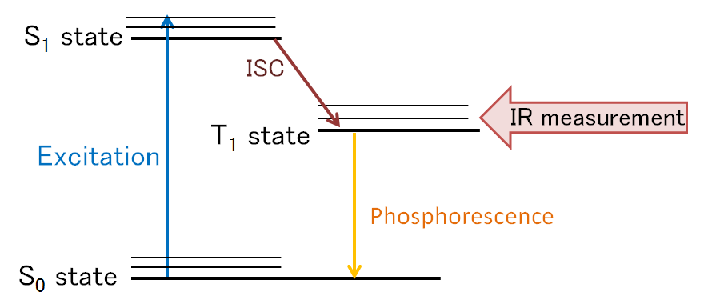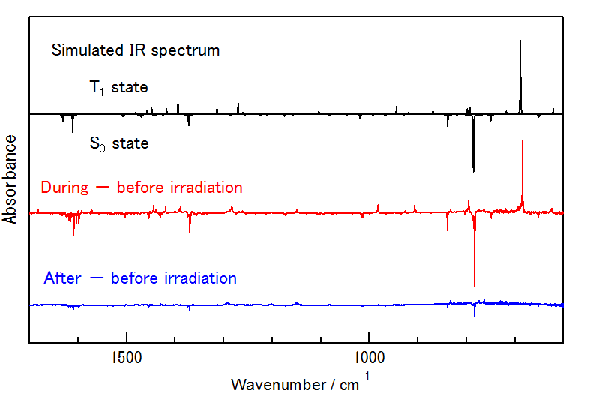Research Topic 2
Infrared spectra of Molecules in the T1 states
Life time of a kind of molecules in the T1state prolongs to a few second in a low-temperature matrix condition. Measuring IR spectrum of them during continuous light excitation, a fine vibrational specrtrum of the T1 state is often obtained. For example, Naphthalene, Dicyanobenzenes, Tetracyanobenzenes, tetracyanopyrazine...were reported.

Recently, we have suceeded in IR measurement of acenaphthene in T1state as shown in the below figure. Black line is a simulated IR spectrum composed of the T1 state (positive) and S0state (negative) estimated at the B3LYP/6-31++G(d,p) level. Red spectrum is difference between IR spectra measured during and before light irradiation, where posivtive bands are assigned to stable photoproducts or transient species. Since the transient species disappear after the light excitation, they are not in blue spectrum which is difference between spectra after and before the light irradiation. It is noted that the simulated spectrum satisfactorily reproduces the red spectrum, resulting in that the photoinduced transient species is surely identified to acenaphthene in the T1state. T. Kumakura, N. Akai, M. Nakata, “Matrix-isolation infrared spectrum of acenaphthene in the lowest electronically excited triplet (T1) state” J. Mol. Struct. 1172, 89-93 (2018). T. Kumakura, N. Akai, M. Nakata, “Photoinduced reversible isomerization of 9H-fluorene into 1H-fluorene by means of hydrogen-atom migration and the lowest electronically excited triplet state studied by matrix-isolation FTIR spectroscopy” Chem. Phys. Lett. 714, 160-165 (2019).
